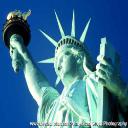Yahoo Clever wird am 4. Mai 2021 (Eastern Time, Zeitzone US-Ostküste) eingestellt. Ab dem 20. April 2021 (Eastern Time) ist die Website von Yahoo Clever nur noch im reinen Lesemodus verfügbar. Andere Yahoo Produkte oder Dienste oder Ihr Yahoo Account sind von diesen Änderungen nicht betroffen. Auf dieser Hilfeseite finden Sie weitere Informationen zur Einstellung von Yahoo Clever und dazu, wie Sie Ihre Daten herunterladen.
The sense of wonder, where religion and science meet?
No, I don't mean the Rachel Carson book.
I'm referring to the feeling I (and perhaps you) get when I listen to some really profound statement about science. Carl Sagan and Richard Feynman were especially good at these kinds of statements. For those of you who don't know what I'm talking about, watch this:
http://www.youtube.com/watch?v=myPSkL_S45E
I am not religious, but my question is for religious and non-religious, for scientists and non-scientists:
Do you think that the feelings I described are the same as those felt by religious people when praying to or contemplating their respective deities, or when listening to religious texts being spoken or sung? It seems to me that there is much in common; that the same brain functions are used in each of these experiences. In other words, might not they be the same experience, but in different contexts?
What are your thoughts?
I have asked this question in both the Religion and Science sections, to get a broader perspective.
9 Antworten
- auntb93Lv 7vor 1 JahrzehntBeste Antwort
Oh, I could watch the entire series all over again there, but I had to draw myself back. "We are made of star-stuff."
Yes, this sense of wonder is what we need, and the fearlessness to separate facts from imagination. And I think it may well be something like what people get when they get deeply into religious practices. I have done enough with various forms of meditation and spiritual practices to suspect that you are right about this.
But the two are not equivalent, in that one is in harmony with our reason and knowledge, and one is not. One energizes the will to understand more, and the other overwhelms any attempt at rational analysis. Worse yet, it can be ruined by attempts to understand.
Personally, I prefer Carl Sagan's way.
- Anonymvor 1 Jahrzehnt
The deepest and most elemental questions are of the metaphysical kind, whether we ask these questions spiritually or scientifically.
Both ways address the essence of what it means to be human.
On a side note, most of the brightest minds the world has conceived have had a religious perspective in common: Deism. Where does science and religion meet? I propose Deism, where science is religion and religion is science.
List of Deists:
Albert Einstein
Socrates
Aristotle
David Hume
Benjamin Franklin
Abraham Lincoln
Mark Twain
Etc.
- Anonymvor 1 Jahrzehnt
Yes. I have Mormon relatives who speak of the "burning of the bosom". A religious connection to God. Maybe our connection to the cosmos is profound and real and maybe we are all energetically a part of it.
Life happens any place it can, maybe we as human beings just happen to have a brain capable of seeing this like a mirror, we know how lucky we are to be able to witness the cosmos from our little place on the planet, a speck in the universe. We are lucky and should be grateful.
A show like "Cosmos" gives the non believer a place to view the awesomeness of life from a point that inspires awe.
God gives the believer that same perspective. In many ways I believe it is the same.
- Ray GLv 7vor 1 Jahrzehnt
Yes, I think you are right. As a Christian, I always liked the Cosmos series, and James Burke's "Connections" and "The Day The Universe Changed". I have merged my faith with my science (I hold two science degrees) and see them as heading in the same direction. Might I recommend you read a great book on the subject written by one of my professors, "The Steppingstones" by Scarborough.
- Wie finden Sie die Antworten? Melden Sie sich an, um über die Antwort abzustimmen.
- ErikaLv 4vor 5 Jahren
in my opinion, i'm able to in no way understand the 'conflict' between faith and technological know-how. technological know-how is according to prediction and sorting out; faith is according to faith. there is not any conflict between the two; different than that the debate has been exacerbated via religious fundamentalists on one area and technological know-how reactionaries on the different. The Bible (and the Koran, for that remember) are no longer medical literature; nor could they be. the wonder of the universe is something to be celebrated; whether by technological know-how or faith, or the two.
- ShinigamiLv 7vor 1 Jahrzehnt
Both of them have the ability to strike both awe and fear in the hearts of men.
We all have those moments in our lives.
- vor 1 Jahrzehnt
I firmly believe that religion and science are two sides of the same coin. Carl Sagan was an amazing thinker in that realm, in particular. When you limit yourself to one or the other, in my opinion, you're missing the boat completely.
It's nice to see SOMEONE around this zoo who's heard of Rachel Carson, btw :-)
- Anonymvor 1 Jahrzehnt
science is never steady.. it changes.. but there are some establish facts. And only establish facts match with religion.And the religion with more scientifically proven facts is of cause Islam.
refer www.irf.net
www.islamguide.com
badzayed@yahoo.com
- vor 1 Jahrzehnt
to be objectively serious here... I truly believe the only religion that is compatible with science as of today is Islam. Check out science and Islam similarities. Islam as a faith really encourages the expansion of scientific knowledge and search






